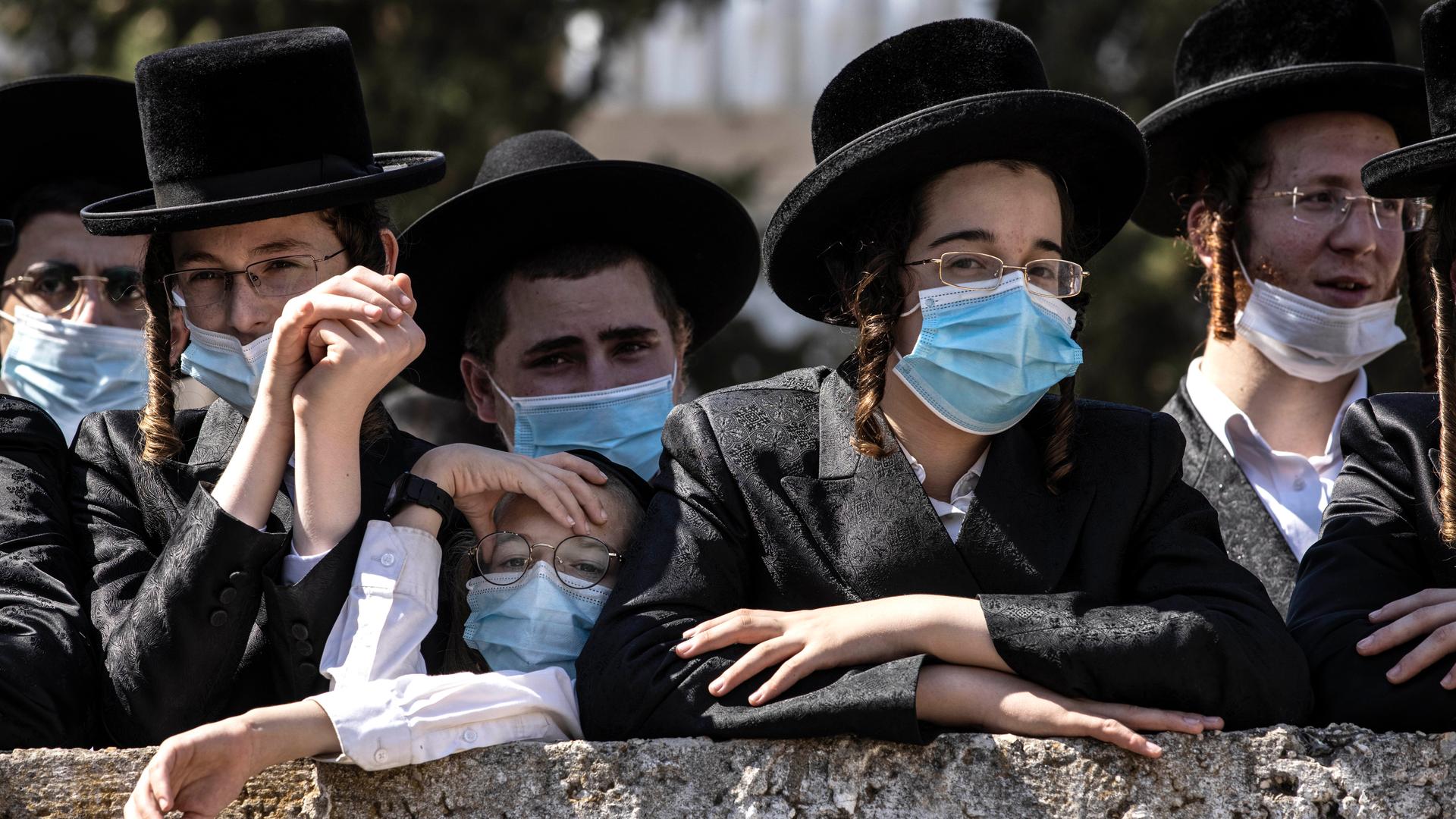Israeli ultra-Orthodox celebrate Simchat Torah holiday despite lockdown orders
Israel went into its second national lockdown last month after a serious spike in coronavirus cases over the summer. And while most people seem to be observing the new restrictions, some of the country’s ultra-Orthodox communities follow their own set of rules as the Israeli government mostly turns a blind eye.
Related: Israelis protest against new COVID-19 measures that restrict protests
That much was evident Saturday night, which marked the Jewish holiday of Simchat Torah in Israel. In the city of Bnei Brak, which has the country’s largest concentration of ultra-Orthodox communities, the streets were pretty quiet.
Under lockdown rules, gatherings are limited to 20 people outdoors and 10 indoors. In the Shikun Hahistadrut neighborhood, it seemed like people were following those rules — that is, until music and singing rang out from the open windows of a yeshiva, a Torah study seminary.
Related: Israel considers a second lockdown as coronavirus cases surge
Ahron Prober, 40, stood outside, checking his phone. Inside, he said, people were performing the traditional hakafot ceremony, in which they dance together around a Torah scroll. It marks the end of the annual cycle of Torah reading.
“In Simchat Torah, we celebrate our connection and longing to the Torah. … For us, the Torah is the essence of everything. Without it, life has no meaning.”
“In Simchat Torah, we celebrate our connection and longing to the Torah,” Prober says. “For us, the Torah is the essence of everything. Without it, life has no meaning.”
Dozens of people were celebrating inside, and none of them wore face masks.
“Almost everyone around here has had COVID[-19],” says Prober, who recently recovered from it himself. “The restrictions are more lenient for people who’ve already had COVID[-19].”
According to Israel’s Health Ministry, that’s not accurate — lockdown restrictions make no distinction between those who’ve had the virus and those who have not.
Israeli authorities have long allowed ultra-Orthodox communities to largely govern themselves on a variety of matters, and the coronavirus is the latest example. Yesterday, the ultra-Orthodox opened their schools, while the nation’s public schools remain closed.
Related: Israel’s hurried school reopenings serve as a cautionary tale
But others at the Saturday yeshiva gathering said the same thing as Prober. “We all had COVID[-19], all 200 of us inside,” says 22-year-old Moshe Valdman. “Those who haven’t had it aren’t allowed in the celebrations at all.”
COVID-19 has hit members of Israel’s ultra-Orthodox society hard. They comprise 12% of the population but account for more than 40% of all current cases. And Bnei Brak has the highest rate of positive tests in the country: about 1 in 5 people are testing positive.
Anshel Pfeffer, a columnist at the Haaretz newspaper and the Israel correspondent for The Economist, says the high infection rates can be explained by many different factors. For example, ultra-Orthodox Jews tend to live in large families, in cramped apartments and crowded neighborhoods.
“…[T]his is a community which, at least a large part of it is ignoring the various social distancing and lockdown regulations.”
“At the same time, this is a community which, at least a large part of it is ignoring the various social distancing and lockdown regulations,” says Pfeffer, who has been covering the ultra-Orthodox for years. Israel’s ultra-Orthodox population operates like an autonomous society, he adds.
Authorities don’t really interfere, and some describe this population as kind of a “state within a state,” he says. It’s been this way for decades, Pfeffer says. As far as ultra-Orthodox leaders see it, the pandemic is just one in a long line of threats they’ve learned to battle.
“From their perspective, this is the same thing as being threatened by the Romans, the Greeks, or any other ancient or less ancient empire which tried to end Jewish life,” Pfeffer says. “They’re saying that the coronavirus is no different and we have to brazen it out and continue studying, and teaching and pray as we’ve always done.”
Ultra-Orthodox Jews aren’t just using prayer to fight COVID-19. They’re running their own informal medical system, too. A local TV report this week exposed a secret ultra-Orthodox program in which volunteers are treating thousands of COVID-19 patients at home, outside the established medical system.
Israeli authorities do little to prohibit these practices. News reports describe a “wink and a nod” agreement between police and ultra-Orthodox leaders.
“Unlike other communities, especially in the second wave of the coronavirus, the enforcement of the police is quite light regarding the ultra-Orthodox communities.”
“Unlike other communities, especially in the second wave of the coronavirus, the enforcement of the police is quite light regarding the ultra-Orthodox communities,” says Gilad Malach, director of the ultra-Orthodox program at the Israel Democracy Institute in Jerusalem. The reason for that, he says, is political.
Israel’s ultra-Orthodox leaders have been part of Prime Minister Benjamin Netanyahu’s coalition for many years. Throughout the years, they have become very experienced in using their power. And Netanyahu knows this very well, Malach says.
“Politically, he depends on the support of the ultra-Orthodox politicians, he’s doing his best to make them satisfied,” he says.
Many ultra-Orthodox Jews tend to look to their rabbis for answers first, rather than government officials. That’s true even during a pandemic, even at the risk of illness or death.
But according to Pfeffer, there’s likely to be another cost down the line: a crisis in faith among younger members of the community. He says some are already starting to drift away.
Related: For rabbis trying to connect the faithful, lockdown creates Catch-22s
”And I think that we will start to see at some point that what’s been happening in recent months in the pandemic will have an effect on these trends,” Pfeffer says. “It will probably intensify them.”
